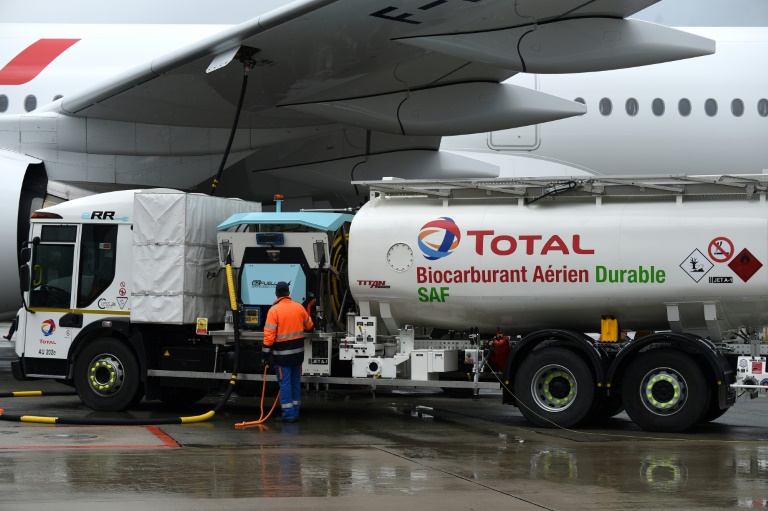Air France-KLM said Monday it would add a surcharge of up to 12 euros ($13,50) on its tickets to try to offset the cost of using more expensive sustainable aviation fuel.
Air France said that the fuel levy would be added to tickets from January 10.
Travellers in economy class will pay between one and four euros more while those in business class will pay between 1.5 euros and 12 euros, depending on the distance to their destination, it said in a message to its clients.
Air France’s Dutch partner KLM and low-cost subsidiary Transavia will also implement the surcharge on flights departing from France and the Netherlands, the company announced, adding that it replaces between 0.5 percent and one percent of the kerosene it uses with the sustainable alternative.
Sustainable aviation fuel or SAF is chiefly made from used cooking oil or from forestry or agricultural waste.
It allows airlines to reduce carbon emissions by 75 percent compared with kerosene over the lifecycle of the fuel.
Jet fuel currently accounts for between 20 and 30 percent of airlines’ costs.
Take-up of SAF, which is between four and eight times more expensive, has been slow.
Current production levels fall far below what would be required to power the world’s aircraft fleet.
In 2019, sustainable fuel represented less than 0.1 percent of the 360 billion litres of fuel used by the aviation industry.
Air France said it was confident that the cost of SAF would fall as more European countries begin mass producing them.
On Thursday, the airline will start offering passengers who are anxious to reduce the carbon footprint of their flight the chance to make a donation towards the purchase of extra sustainable fuel.
Air France vowed that every euro donated would be invested in SAF.
Air traffic accounts for between 2.5 and three percent of global carbon emissions. The industry aims to become carbon neutral by 2050, both by investing in jets that guzzle less kerosene and by using cleaner fuel.
Under a new law that took effect in France on January 1, airlines refuelling in the country are required to use at least one percent of sustainable fuel in their fuel mix — a proportion set to increase to two percent in 2025 and five percent in 2030.









